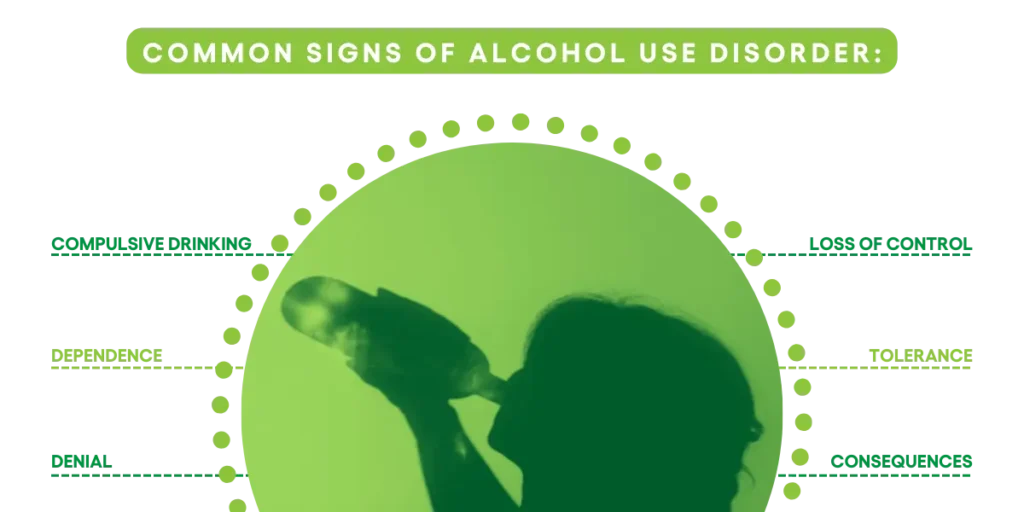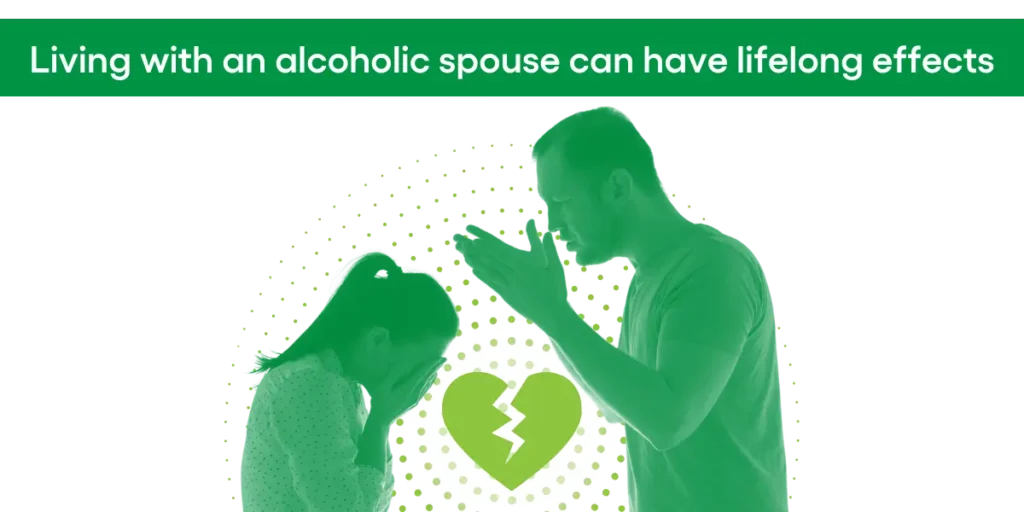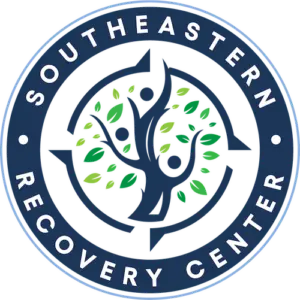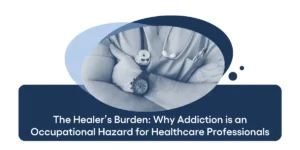Marriage is often described as a partnership built on love, trust, and mutual support. When one spouse struggles with alcoholism, the dynamics within the relationship can become deeply challenging and complex.
The effects of being married to an alcoholic spouse can extend far beyond the one struggling with addiction, impacting the emotional, psychological, and even physical well-being of both partners.
The relationship is ultimately one that can go through storms with turbulent waves – leaving a lot of destruction in its wake if not treated correctly.
What is Alcohol Use Disorder?
The National Institute on Alcohol Abuse and Alcoholism reported that alcohol use disorder (AUD) affected 29.5 million people ages 12 and older in the United States in 2022. AUD, also referred to as alcoholism, is a chronic and progressive condition characterized by an inability to control or limit alcohol consumption despite negative consequences.
AUD is considered a complex medical condition that affects both the physical and mental health of individuals.

Symptoms of AUD
Alcoholism is influenced by a combination of genetic, environmental, and social factors. Genetics play a role in predisposing some individuals to alcoholism, while environmental factors such as family history, peer pressure, and exposure to stress or trauma can also contribute to the development of the disorder. Symptoms of AUD include:
- Compulsive Drinking: Individuals with alcoholism often feel a strong urge or compulsion to drink alcohol, even when they may want to stop or cut back. This compulsion overrides rational thinking and can lead to frequent and excessive drinking.
- Loss of Control: Alcoholics have difficulty controlling the amount and frequency of their drinking. They may start with the intention of having just one or two drinks but find themselves unable to stop once they start.
- Dependence: Continued alcohol abuse can lead to physical and psychological dependence on alcohol. Dependence is characterized by withdrawal symptoms when alcohol consumption is reduced or stopped abruptly. These symptoms can range from mild to severe and may include tremors, sweating, anxiety, and even seizures.
- Tolerance: Over time, individuals with alcoholism may develop tolerance to alcohol, meaning they require increasing amounts of alcohol to achieve the desired effects. This can contribute to escalating patterns of alcohol consumption and increased risk of alcohol-related harm.
- Negative Consequences: Alcoholism often leads to a range of negative consequences, both personally and socially. These may include problems at work or school, financial difficulties, strained relationships with family and friends, legal issues (such as DUIs), and health problems (such as liver disease, cardiovascular issues, and mental health disorders).
- Denial: Many individuals with alcoholism are in denial about the severity of their problem or the impact it has on their lives and the lives of those around them. This can make it challenging for them to seek help or acknowledge the need for treatment.

Effects of Living with an Alcoholic Spouse
Being married to an alcoholic can have a significant impact on a variety of life areas and relationships. It doesn’t just impact the person with AUD, but it also impacts the loved ones, friends, and even complete strangers they may encounter. Some of the effects of AUD on life situations may include:
- Trust Issues: Trust is often eroded due to broken promises, lies, and unreliable behavior associated with alcoholism.
- Communication Breakdown: Effective communication becomes challenging as alcoholism impairs judgment and inhibits clear expression of thoughts and feelings.
- Emotional Strain: Both partners may experience a range of emotions, including anger, sadness, guilt, and shame, leading to increased stress and emotional instability.
- Loneliness and Isolation: The non-alcoholic spouse may feel isolated and unsupported, leading to feelings of loneliness and a lack of emotional connection.
- Financial Instability: Alcoholism can lead to job loss, financial mismanagement, and mounting debt, causing strain on the family’s finances and future security.
- Health Problems: The stress and anxiety associated with living in an unstable environment can contribute to a range of health issues, including high blood pressure, insomnia, and weakened immune function.
- Codependency: The non-alcoholic spouse may develop codependent behaviors, such as enabling or excusing the alcoholic’s actions, to maintain the illusion of stability in the relationship.
- Role Reversal: The non-alcoholic spouse may find themselves taking on additional responsibilities, such as managing household tasks or caring for children, due to the alcoholic spouse’s inability to fulfill their role.
- Social Isolation: Social activities may be limited or avoided altogether due to the alcoholic spouse’s unpredictable behavior or embarrassment over their addiction.
- Legal Issues: Alcoholism can lead to legal problems, such as DUI charges or legal disputes, which can further strain the marriage and family dynamics.
- Impact on Children: Children growing up in households with alcoholic parents may experience emotional trauma, behavioral problems, and difficulty forming healthy relationships in the future.
- Loss of Self-Identity: The non-alcoholic spouse may lose sight of their own needs, interests, and goals as they become consumed by the demands and challenges of living with an alcoholic partner.
- Mental Health Issues: Both partners are at increased risk of developing mental health issues, such as depression, anxiety, and substance abuse, as they struggle to cope with the effects of alcoholism on their relationship.
- Risk of Violence: Alcoholism can increase the risk of domestic violence within the marriage, posing a serious threat to both partners’ safety and well-being.
- Strained Social Relationships: Friendships and family ties may become strained as the non-alcoholic spouse attempts to navigate the complexities of their partner’s addiction and protect their own emotional and physical health.
Examples of How Alcoholism Can Impact Marriages
Even though divorce rates have shown a decline over the past few years – it is not an uncommon occurrence, with alcoholism being a contributing factor in many circumstances.
Celebrities have often aired their dirty laundry across the media, especially in divorce cases and custody disputes. One thing that does not change is the effect that an alcoholic spouse can have on the situation. In the past, stories like Ike and Tina Turner have culminated in movies and memoirs that depict the impact of substance abuse and alcohol on a marriage. Ike’s controlling nature, paired with his substance and alcohol abuse led to a long history of domestic violence.
More recently, the divorce proceedings of Johnny Depp and Amber Heard have put a light on how mental health and substance use can be a recipe for disaster. Although both parties were guilty of using substances, it deteriorated their marriage to a point of no return – resulting in anger, violence, and defamation.
Getting Treatment for Alcoholism
When managed and treated, marriages can survive alcoholism.
A prime example of a couple turning their marriage around despite alcoholism is President Gerald Ford and First Lady Betty Ford. Betty Ford was an alcoholic – but a highly functional one. No one really knew the extent of her illness, however, with the support of her husband, she was able to get treatment and even went on to create the Betty Ford Clinic. Thousands have undergone treatment there, breaking free of the cycle of alcohol addiction.
There is still hope if you live with an alcoholic spouse, although the road may be long and require a lot of recovery. Seeking treatment and even participating in programs together can help rebuild the trust and strengthen the relationship that was damaged by alcoholism.










